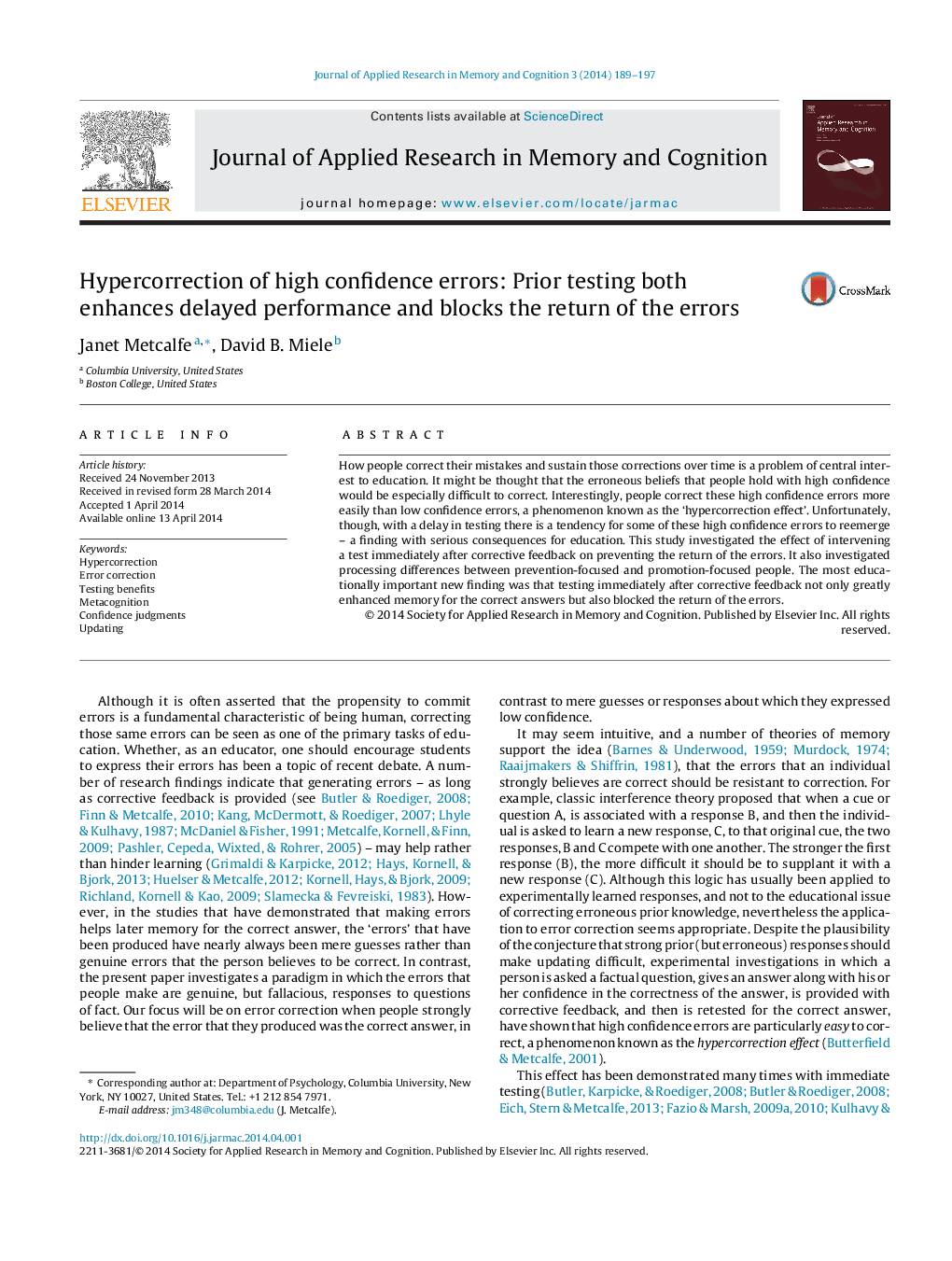| کد مقاله | کد نشریه | سال انتشار | مقاله انگلیسی | نسخه تمام متن |
|---|---|---|---|---|
| 881717 | 911887 | 2014 | 9 صفحه PDF | دانلود رایگان |
• The hypercorrection of high as contrasted with low confidence factual errors, following corrective feedback, persists at a delay of a week.
• High confidence errors do not return at a delay if a test is given after the initial corrective feedback. They do return if no test is intervened.
• Whether the original semantic error comes to mind or not when the person tries to retrieve the correct answer is independent of error correction.
How people correct their mistakes and sustain those corrections over time is a problem of central interest to education. It might be thought that the erroneous beliefs that people hold with high confidence would be especially difficult to correct. Interestingly, people correct these high confidence errors more easily than low confidence errors, a phenomenon known as the ‘hypercorrection effect’. Unfortunately, though, with a delay in testing there is a tendency for some of these high confidence errors to reemerge – a finding with serious consequences for education. This study investigated the effect of intervening a test immediately after corrective feedback on preventing the return of the errors. It also investigated processing differences between prevention-focused and promotion-focused people. The most educationally important new finding was that testing immediately after corrective feedback not only greatly enhanced memory for the correct answers but also blocked the return of the errors.
Journal: Journal of Applied Research in Memory and Cognition - Volume 3, Issue 3, September 2014, Pages 189–197
